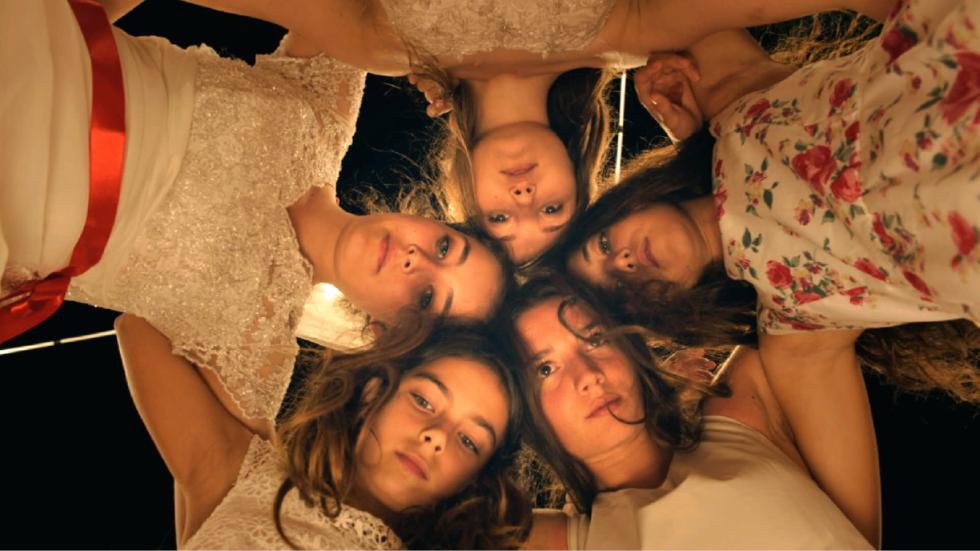Twice in the 1990s, a striking debut made a splash in creative circles. There were, of course, other debuts that have left their marks — Quentin Tarantino’s Reservoir Dogs, for instance, hit screens in 1992, cutting the channel for the coming river of pop culture-saturated stories that would make him a household name — but what made this particular pair stand out was that they both told the same story: one was a debut novel, the other the debut feature film that was based upon that book. Both shared the same name: The Virgin Suicides.
Jeffrey Eugenides’ 1993 best seller tells the tale of a group of teenaged sisters in suburban Michigan living a terribly contained life in the wake of a suicide attempt in the family; their parents, terrified at the thought of losing a child, overcompensate in the worst way possible, eventually turning their children into near-prisoners in their own home. Six years later, writer/director Sofia Coppola would adapt the book for her feature film debut, creating a work that was applauded both for its faithfulness to the source material and for creating its own atmosphere. This week, a debut film from Turkey tells a new tale that harkens back to Eugenides’ and Coppola’s own first efforts.
Deniz Gamze Ergüven’s debut is Mustang. The story of five effervescent young sisters living in Northern Turkey, it will seem like a familiar but not-quite-identical story to fans of those earlier works.
The sisters here find their lives circumscribed not because of a suicide attempt, but merely because they were caught having fun with some male classmates; a neighbor, seeing them at the beach with friends, reports this “illicit” behavior to the girls’ family. And much like Eugenides’ Michigan parents, those here overreact in their own style, removing the “instruments of corruption,” such as computers and mobile phones, from their daughters’ lives in a futile attempt to preserve some unattainable kind of purity. Instead of being trusted to follow their own path, the girls are given endless household chores to prepare them for marriages they aren’t likely to care about. The older sisters are soon married, but the younger of the five, seeing what is in store for them, make a decision to fight for what should be their right to freedom.
Ergüven, who was born in Ankara but lives mostly in France, wanted to return to Turkey for the film as a way to comment on the growing conservatism in the country, although she has gone on record to say that “a film is not a political speech.” Instead, she prefers to see her story as a “fairy tale with … the girls’ five-headed body,” and a longed-for soccer game as the ball these young women hope to attend.
And if you begin to think that things have a bit too much tall tale to them, note that the opening scene that sets everything in motion is based not on a book, but on an incident from Ergüven’s own childhood — here, she aims to right that old wrong, and give her characters the history that she herself could not have. When it happened to her, she says, “I hung my head in shame … I wanted my characters to be heroines.”
Also this week: Families looking for an indoor activity during a winter cold snap could do worse than a visit to Amherst Cinema this Saturday morning, when the ongoing Family Films Series brings in Nicolas Vanier’s 2013 film Belle and Sebastian for a 10 a.m. showing. Based on the acclaimed children’s novel by Cécile Aubry (Trivia: Aubry was also a film star who worked with Orson Welles, and her son Mehdi was the star of a ’60s-era Belle and Sebastian series; he also appears here in a different role), the film chronicles the adventures of six-year-old Sebastian and the giant mountain dog Belle as they try to outwit the Nazi forces coming to occupy their village and look for resistance fighters. And for Sebastian, there is another, bigger, puzzle to solve: where is his missing mother, and will he ever see her again? For a lonely six-year-old, it may turn out that beating the Nazis will be the easier task.•
Jack Brown can be reached at cinemadope@gmail.com.




